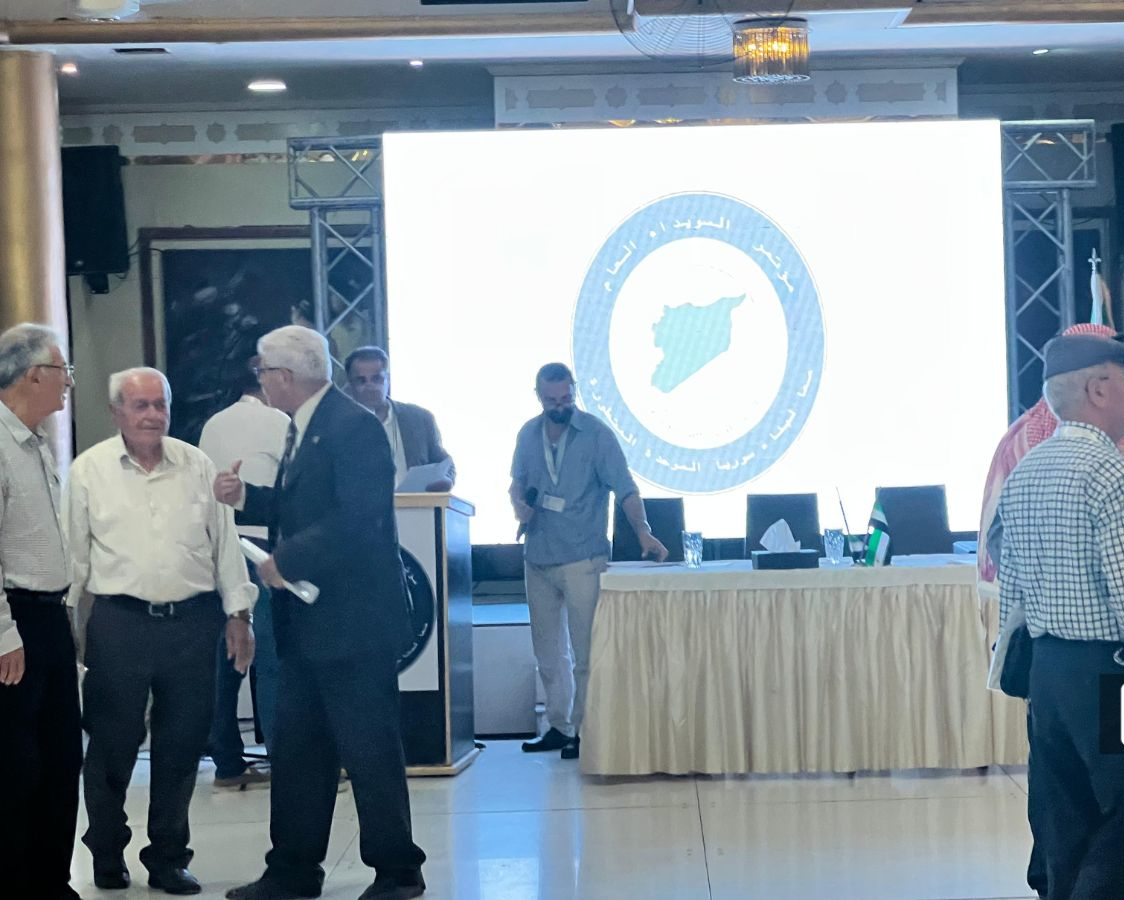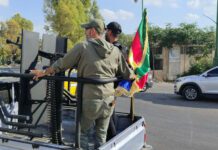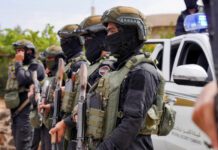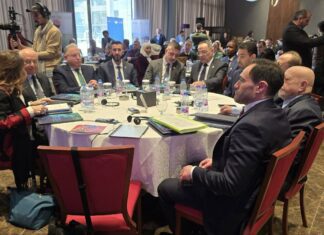
A diverse assembly of political, religious, and civil figures gathered this week in Suwayda for the General Conference, concluding Tuesday with a series of recommendations aimed at redefining the governorate’s relationship with the central government and supporting national unity through institutional reform.
The event brought together approximately 120 participants, including Druze Sheikhs Yusuf Jarbou and Hamoud al-Hanawi, as well as a representative of spiritual leader Hikmat al-Hijri and Christian community members. Conference organizers described it as an effort to formalize local demands and communicate them directly to Damascus.
Forming a Coordinated Voice
Political activist and conference coordinator Maysaa al-Abdullah told the press a 31-member General Secretariat (GS) was elected to represent the conference’s outcomes. The body includes politicians, youth, and six women, and it is tasked with forming committees to engage government institutions.
“Our goal is to regulate relations with the state and affirm Suwayda’s role in shaping Syria’s future,” Abdullah said. She noted that the GS draws its legitimacy from the conference, which included representation from unions, political groups and civic movements.
Dahi al-Debs, representing the Agricultural Engineers Syndicate, emphasized the variety of voices present and the wide-ranging discussions held during the two-day event, with over 90 policy papers reviewed.
Consensus on National Unity
Jamal al-Shoufi, monitoring committee member, described the atmosphere as constructive. He noted broad agreement among attendees on the principle of a unified Syrian state governed by laws and institutions. Discussions addressed a range of complex issues, including transitional justice, decentralization, sectarian rhetoric, and the need for legal reforms.
“There was a clear call to move away from ideological or religious dominance in state identity,” Shoufi said. Participants also supported launching investigations into recent violence in Suwayda, Sahnaya and Jaramana.
Points of Tension and Withdrawal
Despite the overall consensus, the conference was not without controversy. The Men of Dignity faction withdrew after being invited “as guests” without the right to nominate or vote. Ameer Hassan al-Atrash also withdrew, reportedly over protocol issues concerning the omission of his name during the conference’s opening.
In response, Abdullah reiterated the committee’s focus on inclusivity and civil state-building. Shoufi noted that the exclusion of armed factions did not dampen the proceedings, calling such positions “individual choices.”
Suwayda’s Complex Landscape
Suwayda remains a politically unique region, where religious leaders, local armed groups and government institutions share a delicate balance of power. The Druze-majority city has seen intermittent cooperation and tension with Damascus, with some factions rejecting government control outright.
A May 1 agreement between local figures and state authorities to restore security has struggled to take hold. Sporadic violence, including recent shelling from groups labeled by the government as “outlaws,” continues to test the city’s fragile calm. The resignation of Governor Mustafa al-Bakour in May underscored the persistent instability.
Even as the conference aims to push forward a civil, inclusive agenda, Suwayda’s path toward greater autonomy within a unified Syria remains uncertain, shaped as much by grassroots efforts as by national political developments.








